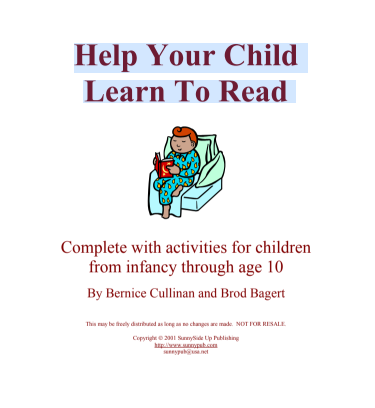How Reading Fiction Improves Emotional Intelligence
In a world driven by data and rapid communication, emotional intelligence (EI) has become more important than ever. It’s the ability to understand, manage, and express your emotions — and to navigate the emotions of others with empathy and awareness. While many turn to self-help books or leadership seminars to build emotional intelligence, there's a quieter, more enjoyable method that has been proven to work: reading fiction.
At Junkybooks, we believe in the power of literature not just to entertain, but to transform. Fiction, in particular, opens up emotional landscapes that help readers become more attuned to the feelings of others — a critical skill for everything from relationships to leadership.
In this blog post, we’ll explore how reading fiction enhances emotional intelligence, drawing from psychological studies, literary examples, and real-world applications.
What Is Emotional Intelligence?
Before diving into the literary side, let’s define emotional intelligence. Coined by psychologist Daniel Goleman, emotional intelligence typically includes five key components:
-
Self-awareness – Recognizing your own emotions and how they affect your thoughts and behavior.
-
Self-regulation – Managing your emotions in healthy ways, taking responsibility, and adapting to changing circumstances.
-
Motivation – Harnessing emotions to pursue goals and maintain persistence.
-
Empathy – Understanding the emotions, needs, and concerns of others.
-
Social skills – Managing relationships, inspiring others, and navigating social networks effectively.
Fiction, as it turns out, helps develop nearly all of these.
Fiction vs. Non-Fiction: Why Stories Matter
Non-fiction books provide facts, strategies, and real-world examples. While useful, they often lack the emotional depth that characters and stories offer. Fiction immerses readers in human experience. It forces us to walk in someone else's shoes, see the world through unfamiliar eyes, and feel what another person is feeling — even if they’re completely different from us.
Psychologists have found that the more immersed readers are in a narrative, the more they develop empathy and insight into emotional situations. This emotional investment is precisely what enhances emotional intelligence.
The Empathy Boost
Reading fiction has been shown to significantly improve empathy, a key component of EI. A well-known study published in the journal Science (Kidd & Castano, 2013) revealed that people who read literary fiction (as opposed to genre fiction or non-fiction) performed better on tests measuring Theory of Mind — the ability to attribute mental states to others.
Why does this happen? Because in literary fiction, characters are often complex, flawed, and evolving. Readers must read between the lines, infer motives, and interpret emotional cues — much like we do in real life.
When you follow a character through emotional highs and lows, you’re essentially practicing empathy. You learn to understand someone’s feelings even if you don’t agree with them, which strengthens emotional awareness in real-world situations.
Perspective-Taking
One of fiction’s greatest strengths is its ability to place readers inside other perspectives. Whether it’s Atticus Finch defending an innocent man in To Kill a Mockingbird, or a character like Celie in The Color Purple overcoming trauma and silence, fiction teaches readers to consider life from different vantage points.
Perspective-taking is at the heart of empathy and emotional intelligence. Leaders who can consider their team’s point of view or friends who can respond with compassion instead of judgment are often shaped by experiences — and fiction offers those experiences vicariously.
Emotional Self-Awareness
Fiction doesn’t just connect us with others; it also connects us with ourselves. When we read about a character struggling with fear, shame, or joy, we often reflect on our own emotional states. Stories help us name emotions we didn’t realize we had, or give us insight into past experiences we hadn’t fully processed.
Characters often serve as mirrors. When we see ourselves in them — in their reactions, desires, and failures — we become more aware of our own emotional patterns. This is the first step toward emotional growth and self-regulation.
Fiction as Emotional Rehearsal
Reading fiction is like running simulations for the heart. When we experience emotional situations through characters, we’re rehearsing how we might react in similar scenarios. What would you do if your best friend betrayed you? If you lost everything overnight? If you found unexpected love?
These fictional trials build emotional resilience. Just as pilots use flight simulators to prepare for real-world challenges, readers use fiction to prepare emotionally. This practice helps in managing emotions more calmly and effectively when similar real-life situations arise.
Social Intelligence and Relationship Skills
In many novels, relationships are central to the story — romantic, platonic, familial, or professional. Watching how characters navigate conflict, trust, forgiveness, and betrayal provides models for social behavior.
Think of Elizabeth Bennet and Mr. Darcy in Pride and Prejudice — a masterclass in miscommunication, pride, humility, and emotional growth. Or Jay Gatsby in The Great Gatsby, whose failure to read emotional cues leads to tragedy.
Fiction teaches that people are complex. It shows that intentions are not always obvious, and that communication goes beyond words. These insights translate directly to better social interactions in real life.
Improved Communication and Empathy at Work
Emotional intelligence isn’t just for personal growth — it’s a professional superpower. Studies show that high-EI individuals are more effective leaders, collaborators, and negotiators. Fiction trains you to pick up on emotional subtext, which makes you a better communicator.
When you’ve spent time inside the minds of fictional characters, you become more patient with colleagues, better at reading between the lines, and more aware of team dynamics. A great novel may teach you more about emotional leadership than a business textbook ever could.
Why Literary Fiction Works Best
Not all fiction is created equal when it comes to developing emotional intelligence. Literary fiction, as opposed to plot-driven genre fiction, tends to focus more on character development, internal conflicts, and subtle emotional shifts.
In literary fiction, there are no easy answers. Readers are required to interpret, empathize, and engage deeply. That’s why novels by authors like Toni Morrison, Kazuo Ishiguro, Alice Munro, and Jhumpa Lahiri are so powerful — they demand emotional engagement.
That said, even well-written genre fiction (like The Hunger Games or Harry Potter) can foster empathy, especially in younger readers. The key is the emotional complexity of the characters and the depth of their personal journeys.
Fiction as a Lifelong EI Tool
Reading fiction isn’t a one-time fix for low emotional intelligence — it’s a lifelong practice. The more you read, the more nuanced your understanding of emotions becomes. With each new novel, you sharpen your emotional radar.
Fiction also evolves with you. A book that once entertained you might later become a source of insight or healing. As you grow emotionally, so does your interpretation of stories.
Building a Fiction-Driven EI Reading List
If you’re looking to boost your emotional intelligence through fiction, here are a few great starting points:
-
“To Kill a Mockingbird” by Harper Lee – Empathy, justice, and coming of age
-
“The Remains of the Day” by Kazuo Ishiguro – Regret, self-awareness, and emotional repression
-
“A Man Called Ove” by Fredrik Backman – Grief, kindness, and transformation
-
“Beloved” by Toni Morrison – Trauma, motherhood, and memory
-
“Never Let Me Go” by Kazuo Ishiguro – Mortality, love, and human dignity
-
“The Book Thief” by Markus Zusak – Compassion in the face of cruelty
-
“Eleanor Oliphant Is Completely Fine” by Gail Honeyman – Loneliness, healing, and connection
These books aren’t just stories — they’re emotional experiences that grow your heart as well as your mind.
Final Thoughts
Emotional intelligence is one of the most important skills for a fulfilling personal and professional life. And while seminars and self-help books have their place, nothing compares to the emotional workout that fiction provides. It offers a safe space to explore difficult emotions, understand others, and practice empathy without real-world consequences.
At Junkybooks, we believe reading fiction is one of the most enriching and transformative habits anyone can build. Not just because it entertains — but because it teaches us to feel more deeply, think more broadly, and connect more meaningfully with the world around us.
So the next time you pick up a novel, know this: you’re not just escaping reality — you’re preparing to face it with more heart.








